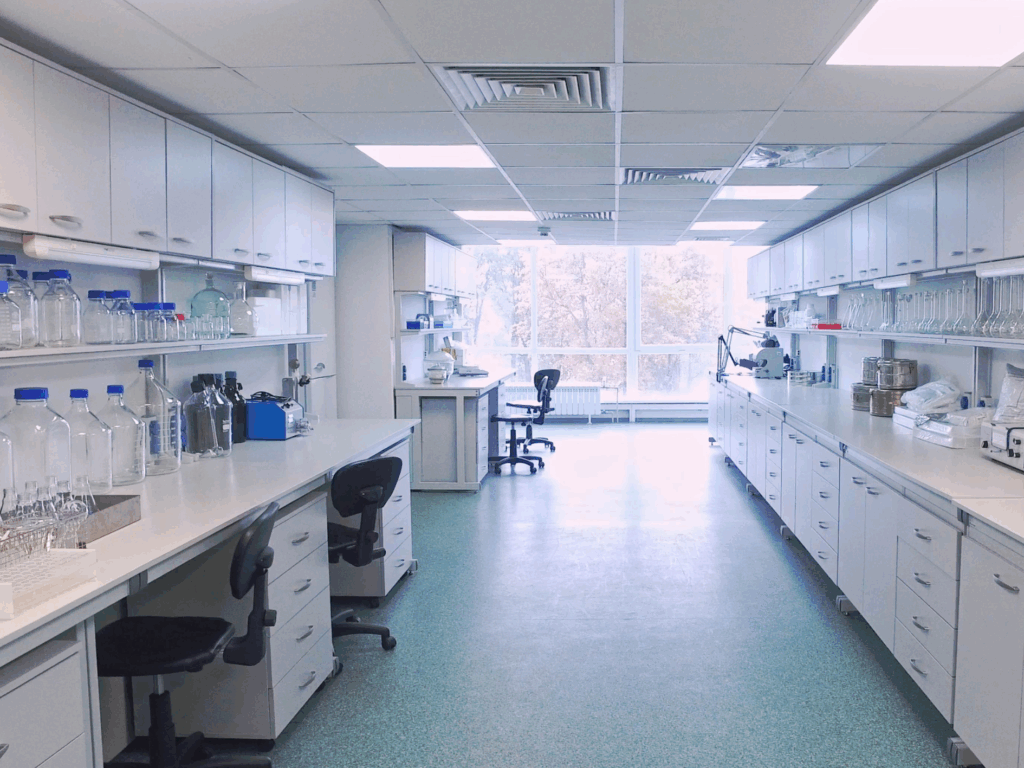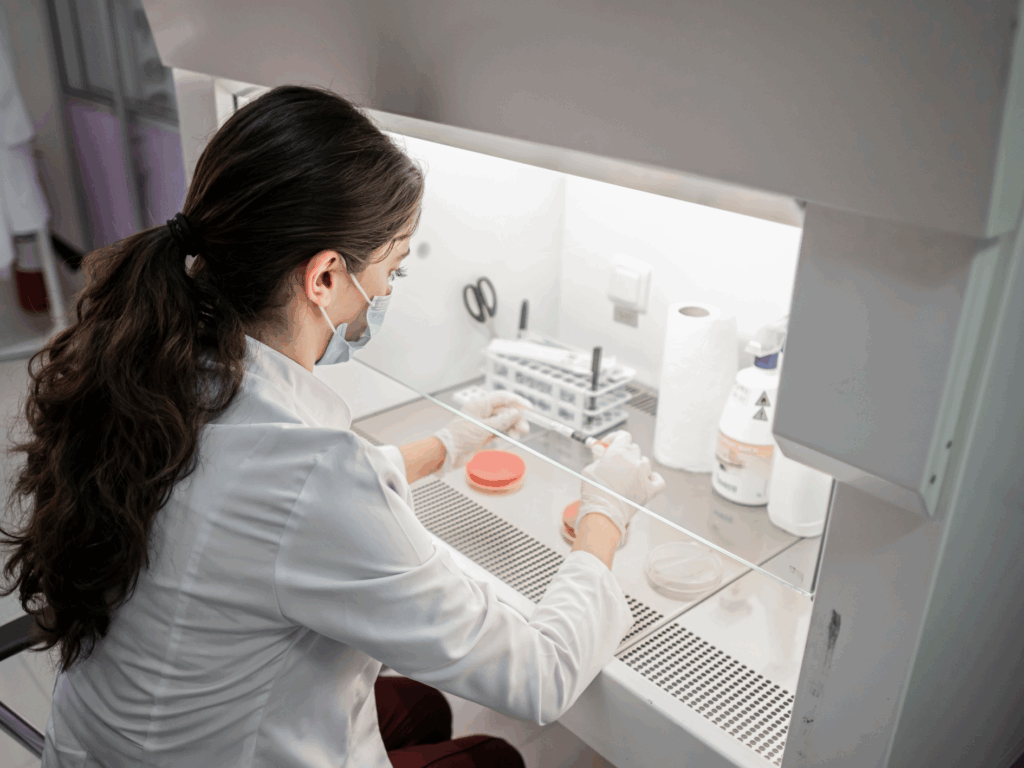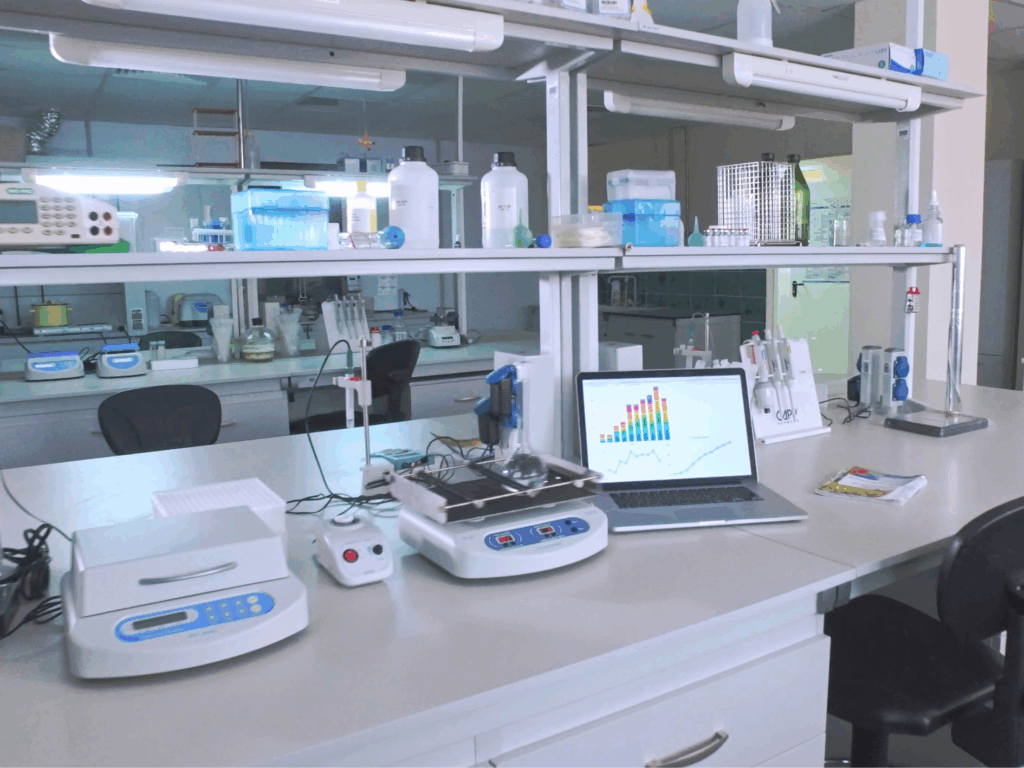FODMAP Friendly Testing
Scientific Testing You Can Trust
At FODMAP Friendly, scientific integrity is paramount to our testing procedures. We perform FODMAP testing on two different types of samples; product testing for food companies as part of our certification program, and our own Ingredient testing for individual foods that are shared in the Food List inside our app. Our commitment to evidence-based testing provides confidence to both brands and consumers that FODMAP Friendly products are truly low FODMAP.


Our Laboratory
FODMAP Friendly partners with Eurofins Scientific – an independent, NATA-accredited food laboratory – to conduct comprehensive FODMAP analysis. This esteemed Australian facility is trusted by government bodies and leading multinational corporations, underscoring our commitment to the highest standards of scientific integrity and quality. By using an external, accredited laboratory, we ensure results are free from bias or influence, testing is conducted under strict quality control procedures and subject to auditing, providing consumers and manufacturers with data they can trust.
Our Testing Process
Product samples are sourced through two distinct pathways: either submitted directly by food manufacturers seeking FODMAP Friendly certification, or independently procured by our team from major retail channels as part of our own ingredient testing program. These samples are meticulously prepared and homogenized into composite samples to ensure consistency. Testing is conducted using advanced methodologies, including enzymatic digestion using Megazyme Assay Kits and chromatography, with results assessed against our evidence-based FODMAP threshold values.
This rigorous process guarantees data that is accurate, reliable, and suitable for commercial application.

What We Test For
FODMAPs are short-chain carbohydrates that can trigger digestive symptoms in people with Irritable Bowel Syndrome (IBS). Our rigorous, NATA-accredited testing protocols provide precise data on the levels of 6 FODMAPs, which are then analyzed against the evidence-based FODMAP thresholds.
Fructans
GOS
Lactose
Excess Fructose
Sorbitol
Mannitol
Benefits of using a third-party laboratory
- Transparency: Our lab’s transparent processes ensure the data backing your product’s low FODMAP claim is clear and verifiable
- Increased Trust & Credibility: The lab’s NATA accreditation and adherence to ISO protocols ensure our certification is globally recognized and trusted.
- Cost: By working with a high-volume, internationally respected laboratory, we’re able to keep testing costs competitive.

Why Ingredient Testing Matters
The FODMAP content of food is not static; it can fluctuate based on a variety of factors, similar to how the sweetness of an apple can vary from one to the next. The following factors can influence FODMAP content:
Location
Soil, exposure to sun, rainfall, drought and climate change will all impact a plant’s growth and therefore carbohydrate content.
Storage
Once harvested, the storage length, temperature and exposure to light will all influence ripening of the food.
Ripeness
Sugars change and develop as food ripens, for example, ripe bananas contain more fructans than unripe bananas.
Variety
Different varieties may contain varying levels of FODMAPs, for example oyster mushrooms are lower in mannitol than shitake mushrooms.
Processing
Boiling, canning, fermentation, soaking, and infusing can all influence the final FODMAP content in food.
Meet our Partners
Start the Process
Test Your Products with Confidence
FODMAP Friendly offers a clear commercial pathway for food and supplement brands looking to gain consumer trust, expand market reach, and unlock new revenue streams.